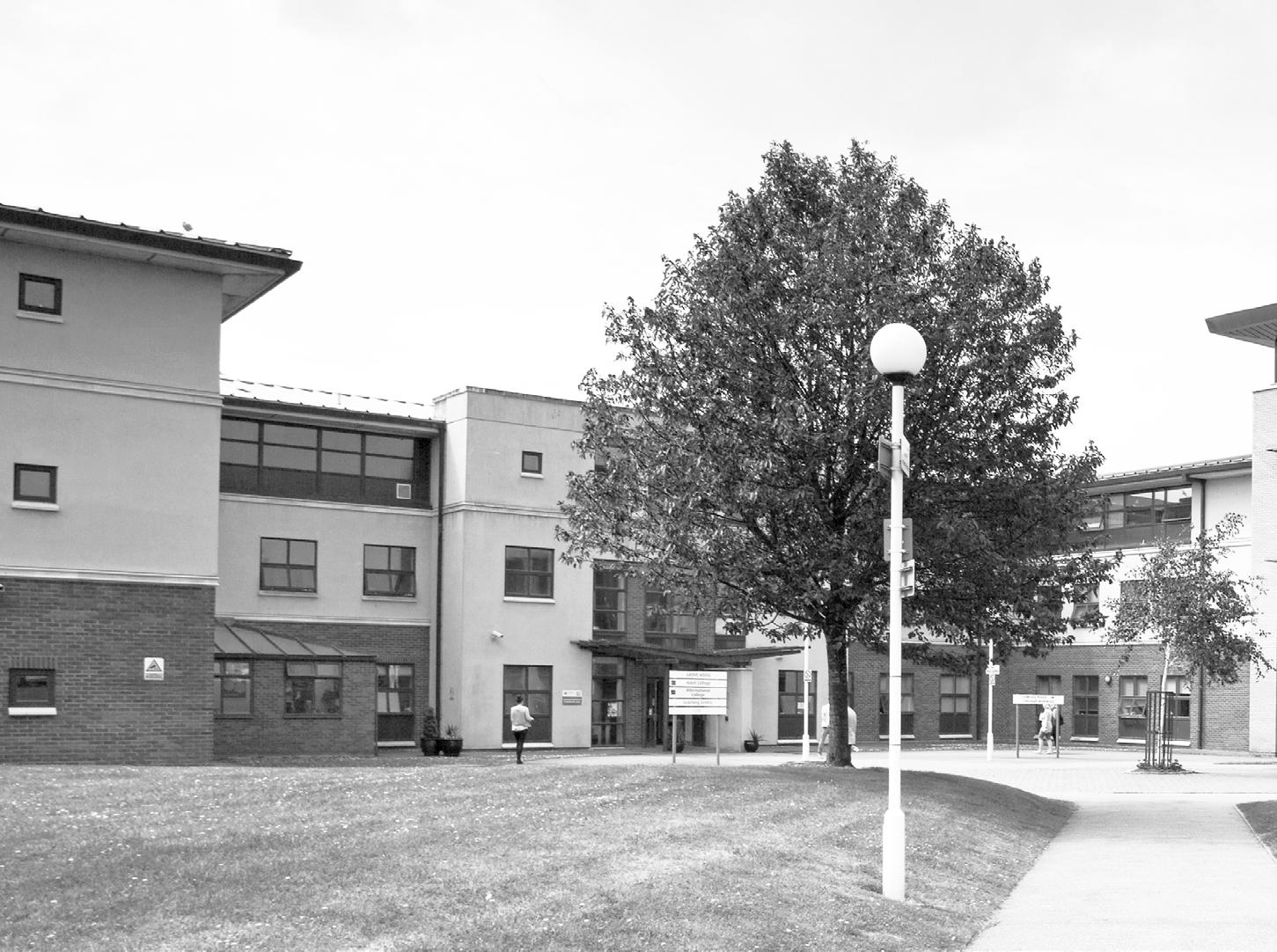
5 minute read
OUR STRATEGIC PRIORITIES
- A CHANGING ENVIRONMENT.
ENVIRONMENTAL CHANGES
The UK hosts the 26th Climate Change Conference in summer 2021 with further commitments expected to accelerate action towards the goals of the Paris Agreement and the UN Framework Convention on Climate Change. As a college we need to support these actions and as an organisation we are committed to being Net Zero on carbon emissions by 2030. We know these issues are important to our student community, so we also need to embed sustainability and carbon literacy into our curriculum to support technical and skills provision that enables our communities to address the climate emergencies many of our local authorities have declared. Green skills in construction, energy and transport will be at the heart of our plans as we look to remove carbon emissions caused by poor building design and fossil fuel energy use.
DEMOGRAPHIC CHANGES
The population of young people in year eleven across East Sussex rises steadily through the decade, from 4,900 in 2020/21 to 5,505 by the end of this strategy in 2024/25, remaining at this rate for the rest of the decade. This presents the college with an opportunity to implement a new curriculum offer alongside a new estates strategy and re-establish our reputation with schools, parents, and young people to welcome this increased cohort and maintain or grow our market share and income. The number of young people with Special Educational Needs and Disability is also rising across the county and our curriculum and estate needs to adapt to ensure we provide a fully inclusive offer for these young people and adults. At the other end of the age spectrum the population of over 65s will also significantly increase. This will mean that there are fewer working age adults in the county - our role to provide training packages for adults in work or looking to retrain will be critically important.
We must also prepare local people for the post Covid and Brexit landscape, providing skills opportunities that link to local jobs and help retain and upskill those already in work to ensure our businesses are prepared for greater digital advances in artificial intelligence and automation.
CURRICULUM & FUNDING CHANGES
Every area of our curriculum delivery is undergoing changes in design and focus that needs to be part of our strategic thinking. These include:
• A move to Apprenticeship Standards and increased employer ownership, including significant changes in the way apprenticeships are funded;
• Significant changes to programmes for young people including the implementation of T Levels and implementation of linear two-year A
Levels, with the potential reduction in applied programmes currently under consultation, providing young people with a potential choice of A or T Levels or an apprenticeship in future;
• The development of a new suite of Higher Technical programmes that will focus on developing skills to meet employer and local needs, providing progression for young people studying T Levels or adults looking to retrain or upskill;
• The expansion of adult skills programmes, with the National Skills
Fund providing government-funded
Level 3 programmes for adults without a Level 3 or above qualification;
• The Lifetime Guarantee, which will provide adults access to modular learning options at Level 4 or above, that fit with work or life commitments.
We will therefore need to be agile, responsive, and adaptive, ensuring that we develop the appropriate programmes to provide an enhanced range of quality education and skills offers that meet learner and employer expectations.
QUALITY CHANGES
The Ofsted Education Inspection Framework focuses on the development of the whole student and not simply the outcomes in exams and assessments. This greater scrutiny of progress and progression as well as personal development and behaviour is welcome; ESC is already expanding the range of enrichment activities and careers and progression support available, to enable our students to enjoy all aspects of their college experience and be supported onto their next step - be that onto university, into an apprenticeship or a job and career.
Adult and higher education quality measures are also following suit, with a greater focus on student satisfaction and employment outcomes. This is great news for the college, as we pride ourselves in providing employment focused learning already. We will improve our destination tracking for adults to highlight our success.

We also want to build on the strong student voice we have at each campus with further work to ensure that our students are able to feed into quality improvements with an even greater say in what is working well and what needs to be improved.
SECTOR CHANGES
New ways of working and new organisational structures continue to emerge within the post 16 sector. ESC was itself created as part of the Area Review process, and the recent Skills and Post16 Education Bill affords greater powers to the Secretary of State to ensure that the sector remains financially sustainable and meets the needs of the localities they serve. We welcome the duty to collaborate that the Bill requires of post 16 providers and will do this by deepening our collaborative work with our sector partners via FE Sussex and look to jointly develop new programmes and ways of working, including developing and responding to Local Skills Improvement Plans (LSIPs) with businesses and civic leaders to narrow skills gaps and address inequality in our communities.
COVID CHANGES
The pandemic has impacted the whole world and will continue to have ramifications in the way people, communities and businesses operate as the economy starts to recover. The world has changed in so many ways and we need to ensure that we take advantage of this and adapt our offer, environment, and culture. From more flexible ways of working and learning that were critical during lockdowns and will become an increasingly important part of post pandemic life to the need to increasingly focus on the mental health and well-being of staff, students and our community and providing catch-up support for lost learning. We moved our digital strategy and online learning capacity on significantly out of necessity but now we need to invest in this digital future further.






